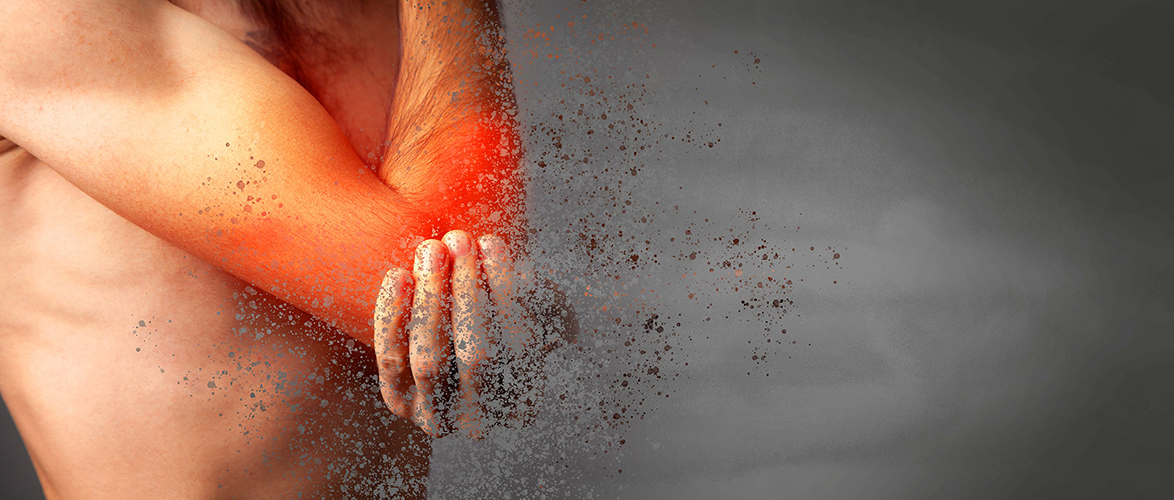
Sympathetically Mediated Pain

What Is Sympathetically Mediated Pain?
Sympathetically mediated pain (SMP) refers to chronic pain caused or exacerbated by dysfunction in the sympathetic nervous system, which controls involuntary functions like blood flow, sweating, and temperature regulation. SMP often results from an injury or nerve damage and is characterized by persistent pain that is disproportionate to the initial injury or trauma. It is a subtype of neuropathic pain and is frequently associated with conditions like Complex Regional Pain Syndrome (CRPS).
What Causes Sympathetically Mediated Pain?
SMP typically arises when the sympathetic nervous system becomes overactive or hypersensitive in response to an injury or nerve damage. Common causes include:
- Injuries:
- Bone fractures, sprains, or soft tissue injuries.
- Surgical trauma or nerve compression.
- Nerve Damage:
- Peripheral nerve injuries or entrapments.
- Post-herpetic neuralgia following shingles.
- Medical Conditions:
- Complex Regional Pain Syndrome (CRPS), especially Type I.
- Neuropathy associated with diabetes or other systemic illnesses.
- Other Factors:
- Repetitive strain or overuse injuries.
- Vascular conditions that reduce blood flow to affected areas.
The exact mechanism of SMP is not fully understood, but it involves abnormal communication between the sensory and sympathetic nervous systems.
What Are the Symptoms of Sympathetically Mediated Pain?
SMP symptoms can vary widely and often affect the extremities. Common symptoms include:
- Persistent, burning, or aching pain in the affected area.
- Sensitivity to touch or temperature changes (allodynia).
- Swelling, redness, or changes in skin color.
- Abnormal sweating or dryness in the affected region.
- Muscle weakness, stiffness, or reduced mobility.
- Changes in hair or nail growth.
Symptoms often worsen with emotional stress or physical activity and may spread to surrounding areas over time.
How Is Sympathetically Mediated Pain Diagnosed?
Diagnosing SMP involves a thorough evaluation by a healthcare provider. Key steps include:
- Medical history: Discussing your symptoms, recent injuries, and any conditions affecting the nervous system.
- Physical examination: Assessing pain levels, skin changes, and range of motion in the affected area.
- Nerve blocks:
- A diagnostic sympathetic nerve block may be performed. Temporary relief following the injection confirms the involvement of the sympathetic nervous system.
- Imaging tests:
- X-rays, MRIs, or bone scans to rule out structural issues or other causes.
- Additional tests:
- Thermography or skin temperature studies to detect abnormal blood flow or temperature regulation.
What Are the Treatment Options for Sympathetically Mediated Pain?
Treatment for SMP focuses on reducing pain, improving function, and addressing the underlying cause. Common approaches include:
- Medications:
- Pain relievers: NSAIDs for mild pain; stronger painkillers for severe cases.
- Nerve-modulating drugs: Gabapentin or pregabalin to reduce nerve sensitivity.
- Antidepressants: Such as amitriptyline to manage chronic pain.
- Topical agents: Lidocaine or capsaicin creams for localized relief.
- Nerve Blocks:
- Sympathetic nerve blocks to interrupt pain signals and reduce inflammation.
- Physical Therapy:
- Gentle stretching and strengthening exercises to improve mobility and function.
- Desensitization techniques to reduce sensitivity in the affected area.
- Neuromodulation:
- Spinal cord stimulation or peripheral nerve stimulation to modulate pain signals.
- Psychological Support:
- Counseling or cognitive behavioral therapy to address the emotional impact of chronic pain.
- Alternative Therapies:
- Acupuncture, massage, or biofeedback to manage pain and improve relaxation.
- Surgical Options:
- In rare cases, procedures like sympathectomy may be considered to disrupt overactive sympathetic nerves.
When Should You See a Doctor for Sympathetically Mediated Pain?
Consult a healthcare provider if:
- The pain persists for more than a few weeks or worsens over time.
- Symptoms interfere with daily activities or quality of life.
- The affected area shows signs of severe swelling, discoloration, or abnormal sweating.
- Pain spreads beyond the initial injury site.
Take Control of Sympathetically Mediated Pain Today
Sympathetically mediated pain can significantly impact your life, but effective treatments are available to help you regain comfort and mobility. If you’re experiencing persistent discomfort or other concerning symptoms, consult a healthcare provider for a comprehensive evaluation and personalized care plan. Take the first step toward relief and better pain management today!
